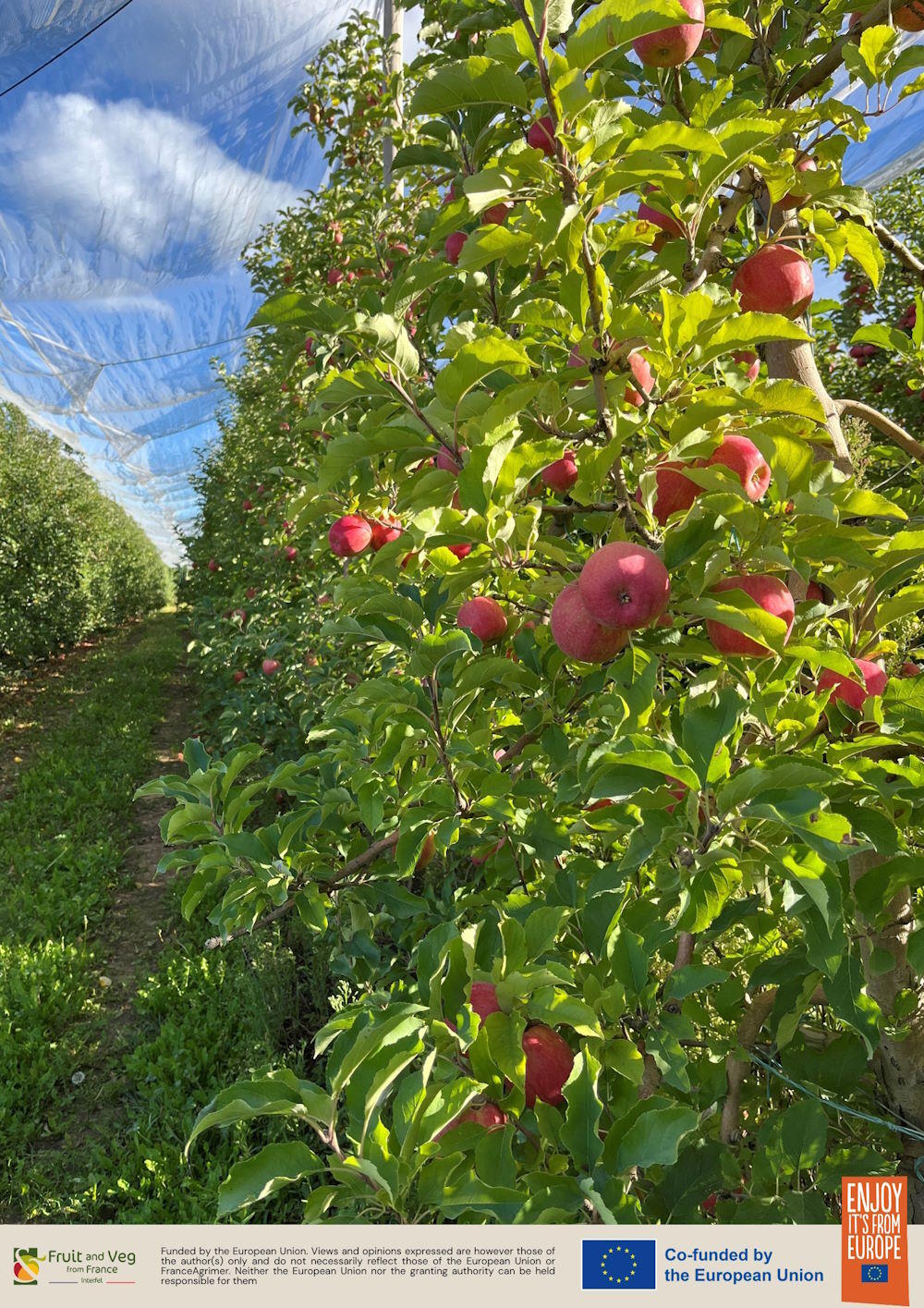European apple exports to the Middle East continue to remain popular due to
their exceptional quality, diverse varieties, superior taste, consistency and
year-round availability
Luxury retailers, hotels, gourmet dining establishments, and health-conscious
consumers seeking premium, nutritious produce are all driving the demand.
The European Union, in partnership with Interfel, the French fresh fruit and
vegetable organisation, has launched a series of promotional activities to
showcase European apples across the region throughout 2024 and 2025.
Dubai, United Arab Emirates, 9 October 2024: A campaign to promote European
apples is proving to be so fruitful in the Middle East region that the European Union
and the French National Apple will be undertaking a third successive export
campaign, with French apples taking centre stage.
The campaign aims to highlight European apple production’s exceptional quality,
variety, and eco-friendly practices, with a particular focus on apples from France.
Despite global agricultural challenges, the 2024 French apple harvest has remained
stable, reaching 1.463 million tonnes.
“French apples have long been appreciated for their taste and quality, and this year’s
harvest is no different. The apples’ excellent shape and outstanding quality have
made them popular with consumers and food professionals in the region,” said
Daniel Sauvaitre, a fruit grower from Charente and president of the French Fruits
and Vegetables Trade Association Interfel in France.
While the mainstay varieties such as Royal Gala, Granny Smith, Golden Delicious,
and Red Apples remain popular, there has been a noticeable surge in demand for
club varieties gaining momentum in the Middle Eastern market, including Juliet, Pink
Lady, Candine, Candine Organic, Joya, Pixie, Story (Lolipop), Kissabel, and Coeur
de Reine.
“These specialised apples are gaining ground, reflecting a shift in consumer
preferences towards distinct flavours and high-quality products,” added Sauvaitre.
One of the highlights of French apple production is its eco-conscious approach.
Since 2010, French apples have carried the “eco-friendly orchards” label,
representing 1 million tonnes of apples grown sustainably, resonating strongly in the
Middle East, where eco-friendly products are gaining increasing importance.
To further support French apple exports, a series of promotional activities will take
place across the GCC during the remainder of 2024 and into H1 2025, following the
success of similar initiatives during the last two years.
Last season’s campaign included over 443 in-store tasting sessions across the GCC
in 182 outlets between October and March, featuring sampling, gondola brandings,
and digital promotions in major retailers such as Lulu, Panda, Monoprix and
Carrefour. These efforts ensured that French apples were featured across the Middle
East, offering consumers enticing price promotions and exclusive gifts.
In addition, the campaign also held six interactive French Apple Pop-Up events
across Jeddah, Riyadh, Muscat, Doha, and Kuwait, as well as at the Taste of Dubai
festival.
A specialised training program was also introduced for retail professionals and chefs
to enhance local expertise in French apple varieties. The program, led by the Best
Craftsman in France, Catherine Botti and French Chef Jean-François Le Luherne,
provided a unique opportunity for participants in Dubai to discover and learn more
about French apple varieties and gain insights from industry experts.
“Focusing on diversity and quality has positioned French apples as a favourite in the
Middle East. With the European Union’s support and the region’s promotional
activities, French apples are poised to remain a top choice for consumers and
professionals alike,” concluded Sauvaitre.


